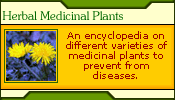|
In 1838, a Dutch chemist, G.J. Mulder, described a certain organic
material as "unqestionably the most important of all known
substances in the organic kingdom. Without it, no life appears possible
on our planet. Through its means the chief phenomena of life are
produced. " This complex nitrogen-bearing substance was called
protein from the Greek word meaning " take the first place."
Protein in now a group name signifying the principal nitrogenous
constituents of the protoplasm of all plant and animal tissues.
Proteins are extremely complex organic compounds of the elements
carbon, hydrogen, oxygen, nitrogen, and,with some exceptions, sulphur.
Most proteins also contain phosphorous, and some specialised proteins
contain iron, iodine, copper and other inorganic elements. The presence
of nitrogen distinguishes proteins from carbohydrates and fats.
Proteins are thus vital substances, which form important constituent
of muscles, tissues, and the blood. Proteins supply the building
material for the body and make good the wear and tear of tissues.
Several substances concerned with vital life processes such as enzymes,
which help in digestion of food, are chiefly protein in nature.
There are several varieties of protein. Each type contains a specific
number of "building blocks " known as amino-acids. Before
they can be absorbed by the body, all proteins must first be broken
down into amino-acids. When food stuffs are ingested, the nutrients
and amino-acids do not immediately diffuse into all the different
tissues. There are a series of biochemical reactions in the digestive
tract which collect these proteins, break them down and then utilise
them as needed. Any interference with the normal digestive process
causes in-complete protein digestion resulting in gas, bloating
etc.
There are about 22 amino acids needed for the normal functioning
of the body. The body can manufacture many amino acids if it has
no adequate nitrogen source, but it cannot produce certain others
in sufficient amounts to meet its needs. The amino acids that the
body cannot synthesis is in adequate amounts are called essential
or indispensable because they must be supplied by the diet in proper
proportions and amounts to meet the requirements for maintenance
of growth of the Non-essential or dispensable amino acids are those
thatissue. the body can synthesize in sufficient amounts to meet
its needs if the total amount of nitrogen supplied by protein is
adequate.
Protein is needed by every living organism, and next to water,
makes up the largest portion of our body weight since it is contained
in muscles, organs, hair, etc. The protein used in making up the
body is not directly derived from diet, but the dietary protein
is broken down into amino acids, and the body then re-constitute
these amino acids into the specific proteins needed.
Enzymes and hormones regulating body functions are also proteins.
And amino acids are used in most body processes from regulating
the way the body works to how the brain functions - They activate
and utilize vitamins and other nutrients.
Proteins are chains of amino acids linked together, bound together
with peptide bonds and there are about 28 amino acids commonly referred
to in human health.
The liver manufactures about 80% of these amino acids, but the
remaining 20% of such amino acids must be supplied directly by diet,
and these amino acids are referred to as the essential amino acids.
These essential amino acids are: histidine, isoleucine, leucine,
lysine, methionine, phenylalanine, threonine, tryptophan and valine.
The 80% or so others that are manufactured by the liver includes:
alanine, arginine, asparagine, aspartic acid, citrulline, cysteine,
cystine, gamma-aminobutyric acid, glutamic acid, glutamine, glycine,
ornithine, proline, serine, taurine and tyrosine.
The functioning of amino acids are interrelated, and a balanced
and steady supply of these nutrients are needed to maintain proper
body functioning. A dietary shortage of amino acids can impact negatively
on your health - just as other stressors, such as trauma, drug use,
age, infections etc.
When the body synthesizes protein, ammonia is formed in the liver
as a waste product, and too large amounts of protein into the diet
can result in too much ammonia being formed, and in so doing placing
extra stress on the liver and kidneys to flush it out the body.
Amino acid supplements come in various forms but can essentially
be divided in three types of products - either derived from animal
protein, yeast or vegetable protein. Most amino acids can be produced
in two forms, except for glycine, that is either a D or L form.
These letters stands for the way in which the amino acid spiral
is wound up - D is for the right wound type and L for the mirror
left winding amino acid.
Human amino acid is the L type and for this reason many people
prefer to use supplements containing the L type amino acid.
|


















